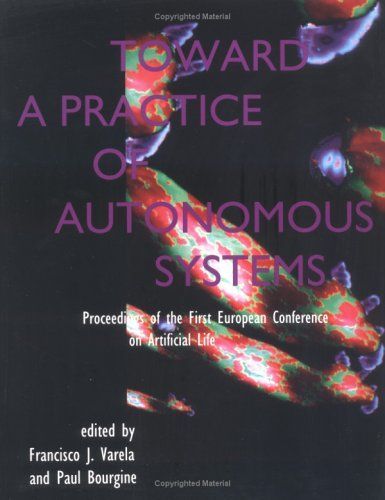
Toward a Practice of Autonomous Systems Proceedings of the First European Conference on Artificial Life
Artificial life embodies a recent and important conceptual step in modem science:asserting that the core of intelligence and cognitive abilities is the same as the capacity forliving. The recent surge of interest in artificial life has pushed a whole range of engineeringtraditions, such as control theory and robotics, beyond classical notions of goal and planning intobiologically inspired notions of viability and adaptation, situatedness and operationalclosure.These proceedings serve two important functions: they address bottom-up theories ofartificial intelligence and explore what can be learned from simple models such as insects about thecognitive processes and characteristic autonomy of living organisms, while also engaging researchersand philosophers in an exciting examination of the epistemological basis of this new trend.FranciscoJ. Varela is Director of Research at CNRS in Paris, France. Paul Bourgine is Professor of ArtificialIntelligence at CEMAGREF, Antony, France.Topics include: Artificial Animals. Genetic Algorithms.Autonomous Systems. Emergent Behaviors. Artificial Ecologies. Immunologic Algorithms. Self-AdaptingSystems. Emergent Structures. Emotion And Motivation. Neural Networks. Coevolution. FitnessLandscapes Contributors include: H. Bersini. Domenico Parisi. Rodney A. Brooks. Christopher G.Langton. S. Kauffman. J.-L. Denenbourg. Pattie Maes. John Holland. T. Smithers. H. Swefel. H.Muhlenbein.